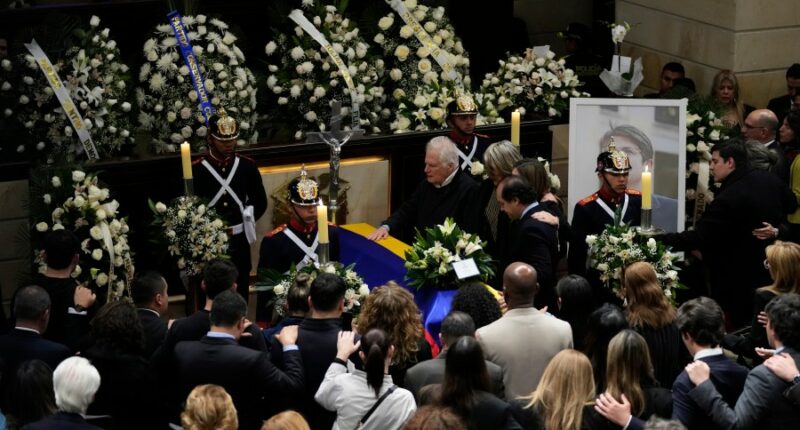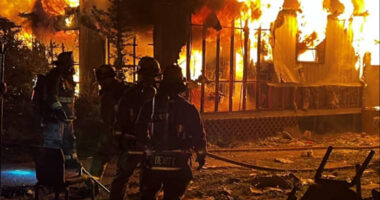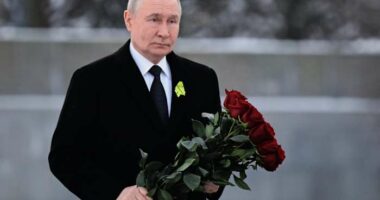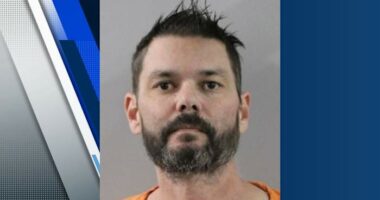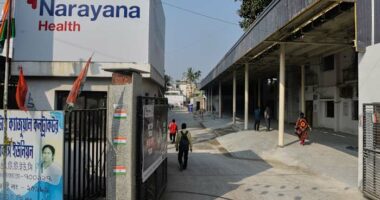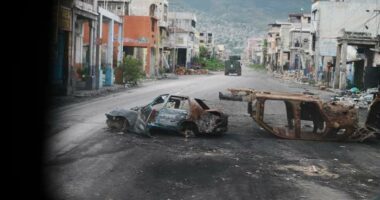Share this @internewscast.com

BOGOTA, Colombia (AP) — A Colombian senator and presidential candidate who was shot at a political rally in June, reminiscent of some of the country’s darkest drug-related violence, passed away on Monday.
Miguel Uribe Turbay’s family announced that the politician died at a hospital in Bogota, the capital. Uribe, aged 39, was shot three times, with two bullets hitting his head, while delivering a campaign speech in a park. He had remained in intensive care, experiencing serious health issues with occasional slight improvements.
“Rest in peace, love of my life. I will take care of our children,” his wife, María Claudia Tarazona, stated in a social media post confirming his passing. “I ask God to guide me in learning to live without you.”
A teenage suspect was apprehended at the scene of the June 7 incident in a working-class neighborhood in Bogota. Authorities later arrested several others, but have yet to identify the mastermind behind the attack or the motive.
The shooting, captured in numerous videos, deeply unsettled Colombians who had not witnessed such political violence against presidential hopefuls since Medellin drug lord Pablo Escobar waged war against the state in the 1990s.
Uribe’s mother, the prominent journalist Diana Turbay, was among the casualties of that era. She died in a police rescue attempt following her kidnapping by a gang of drug traffickers led by Escobar, who attempted to prevent their extradition to the United States.
“If my mother was willing to give her life for a cause, how could I not do the same in life and in politics?” Uribe, who was just 5 when his mother was killed, said in an interview last year with a Colombian news outlet.
Uribe, a lawyer with a masters degree in public administration from Harvard University, entered politics as a councilman for Bogota when he was 26. In 2022, he was the biggest vote-getter in the conservative Democratic Center party led by former President Álvaro Uribe.
“Evil destroys everything,” the ex-president, who is not related to the senator, said on social media. “They have killed hope. May Miguel’s struggle be a light that illuminates Colombia’s path.”
The senator was among the strongest critics of Colombia’s current government. In October, he joined the list of politicians seeking to replace Gustavo Petro, the first leftist to govern Colombia, in the May 2026 elections.
Authorities have floated several hypotheses about what led to the attack, while allies of the candidate have complained that the government ignored repeated requests to reinforce his state-provided security detail.
Petro took to X to offer condolences to Uribe’s family and stress that the “investigation must be furthered.”
“The government must repudiate the crime and help,” Petro wrote. “Regardless of ideology, the person and their family, their life and safety, are the government’s priority. We have not persecuted any member of the opposition, nor will we.”
In the immediate aftermath of the attack, tens of thousands of people dressed in white and waving Colombian flags took to the streets to reject the violence.
U.S. Secretary of State Marco Rubio was among the foreign politicians who lamented the senator’s death.
“The United States stands in solidarity with his family, the Colombian people, both in mourning and demanding justice for those responsible,” he posted on X.
By declaring his aspirations to higher office, Uribe sought to become the country’s youngest president, although he was not on the list of favorites in the early stages of the race when he was shot. The shooting prompted the government to strengthen security for all opposition politicians and presidential hopefuls, some of whom called off political rallies for fear of being attacked.
Javier Garay, a political science professor at the Externado University of Colombia, said Uribe has already “become a symbol of the Colombian right.” However, he considered it premature to predict whether the senator’s death will strengthen the political faction, given the current lack of unity and diverse proposals from dozens of politicians vying to represent the bloc on next year’s ballot.
____
Associated Press writer Regina Garcia Cano contributed from Mexico City.
___
Follow AP’s coverage of Latin America and the Caribbean at
